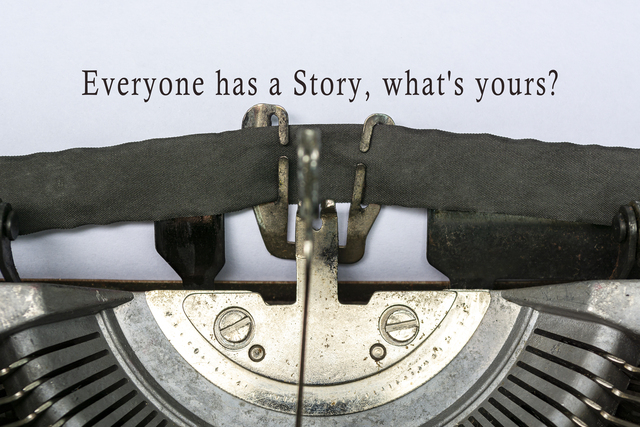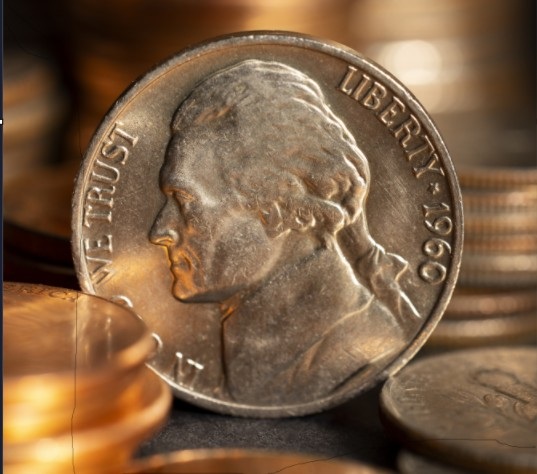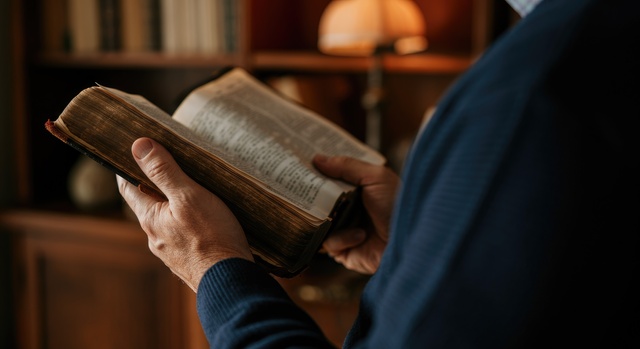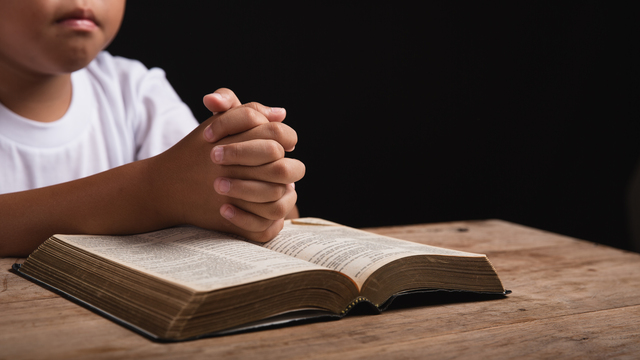How Well We Wait Just May Determine How Well We Live
"Waiting has a way of shining a spotlight on our insecurities and unmasking just how vulnerable we are."

Somewhere, at this very moment, a person is lying on a hospital bed waiting for the test results to come in. What if it’s cancer? What if my life is about to end? Perhaps in your midst is an individual waiting to hear back from a job they applied for. Am I going to afford next month’s rent? Across the globe, people are waiting for something — an opportunity, a miracle, a work of God. Maybe you are waiting for something right now. Really, the majority of this earthly life is spent waiting. And far too often, we fall apart during the process.
As Christians, our lives are centered around our waiting to be with Christ, face to face, in heaven. The Bible describes us as exiles and sojourners. Nomads, if you will. Scripture makes it clear that earth is but a mere temporary dwelling place, and that our true home is in paradise. Pastor Jamie Dunlop of Capitol Hill Baptist Church put it well when he said, “The preeminent posture of a Christian is to wait. … We live with a promise of … a rescue for which we wait. And how well we wait is perhaps the most crucial factor in how well we live. Because waiting is inseparably bound up with faith.”
“If you think about it,” he continued, “an inability to wait well is behind most sins. From anger to immorality to greed to envy, even laziness,” is an inability to wait. “Behind discontent and discord and bitterness” is an inability to wait. “When we tire of waiting for rescue, what do we do? We look elsewhere for rescue. We look to the promises of this world that offer a faster timetable without the cost of waiting on God’s rescue. … The danger for those who wait is that they [often] assimilate. They become like this world.”
Jesus said in Matthew 5:13, “You are the salt of the earth, but if salt has lost its taste, how shall its saltiness be restored? It is no longer good for anything except to be thrown out and trampled under people’s feet.” If we are to be the salt preserving what is good, we must remain salty. If we are to be the light shining God’s truth, then we must remain radiant. And so, the question is, “How can you wait but not assimilate?” First, we must have the right mindset on what it means to wait.
Dunlop put it this way: “Waiting well isn’t about just a few big moments in life. It much more is a way of life.” This only makes sense, doesn’t it? Because, really, being a Christian is a way of life. To be born again is to go from a heart of stone to a heart of flesh. It’s to go from an unrighteous sinner to a repentant sinner covered in Christ’s atoning blood. The Bible describes us as “a new creation” (2 Corinthians 5:17), and we’re called to live a life that reflects our newness in Christ. Jesus said, “You will recognize them by their fruits” (Matthew 7:16-20). As such, even in our waiting, we have the opportunity to bear fruit. Or rather, especially in our waiting, we have this chance to shine the light of Christ.

While waiting, we’re tempted to look elsewhere, as Dunlop addressed. We’re tempted to take shortcuts, which often lead to sin. How often does waiting for marriage, where many people feel discontent, lead to lustful sins such as addictions to pornography? It’s nearly an everyday occurrence that, in waiting for something we want to happen, we completely miss out on what God is doing in our lives. When we wait, we have a harmful tendency to misplace our priorities. We put our faith in what we see, rather than what we don’t see, even though Hebrews 11:1 clearly states that “faith is the assurance of things hoped for, the conviction of things not seen.” When we wait, we grow weary and discontent. This is despite the fact that the Apostle Paul laid out in Philippians 4 that the key to contentment is Christ. And with Christ, he asserts, we can “do all things.”
Waiting has a way of shining a spotlight on our insecurities and unmasking just how vulnerable we are. And yet, as I briefly noted, we are almost always in a state of waiting. Put aside the earthly ambitions we wait for (i.e., job offers, significant others, promotions, etc.). As Christians, we are waiting for Christ. The only reason we are on this earth is because Christ is not done using us. He’s not done unfolding His masterplan. He’s not done bringing people into the fold. If He’s not done, that means we’re still waiting. So, what are we to do?
What do we do when our patience runs thin? What do we do when our waiting causes us anxiety? What do we do when we grow weak in our waiting and give into the flesh? What do we do when our waiting begins to feel like abandonment? Well, I will tell you what we do. We turn to Christ.
Theologian B.B. Warfield once said, “A firm faith in God’s providence is the solution to all earthly problems.” Do you struggle with bitterness, anger, or anxiety? Does waiting only make it worse? As Dunlop expressed, and I’m keen to agree, “Trust in God’s providence is the key that unlocks the trap of bitterness, because only through such trust can we entrust to God the hardship we’re encountering, knowing it has a purpose. Trust in God’s providence is the key that unlocks hatred, as we entrust injustice to God, knowing that He will address it.”
As Warfield went on to observe, this also applies to anxiety. “As we trust the future to God, knowing His care is powerful no matter what the future holds. God’s providence is how we move through grief. … God’s providence is how we respond to the weakness of a friend or a spouse with tenderness rather than disdain. God’s providence is how we respond to setbacks with hope and grace. … I hope you can see how believing in his providence … would have a profound impact on your contentment in life.” Ultimately, “God’s providence means that everything, when placed in His good and sovereign hand … is woven together for good. It means that pain is like the surgeon's scalpel rather than the criminal’s knife. It means adversity is measured out, drop by drop, for your good. It means blessing also has purpose.”

It’s important to note that trusting in God’s providence does not always mean we understand His purposes. “At least not this side of heaven,” Dunlop stated, “it certainly doesn’t mean that we get to define good on our own terms. It doesn’t deny evil or God’s hatred of evil, yet it does trust that He turns evil to good.” But “a trust in God’s providence is a contentment and joy and peace that the rumblings of this world can never shake.” This is crucial to understand, because another temptation amid waiting is to exchange the truth for a lie.
We’re tempted to believe in our finite, flawed understanding of our circumstances more than the understanding rooted in the Author’s infinite wisdom and knowledge. As read in the devotional, “The Valley of Vision,” an anonymous puritan once wrote: “Grant me grace to distinguish between the genuine and the false, and to rest in Thee who art all love.” When we’re tempted to let waiting lead to assimilation, may we cry out: “Thou art the foundation of goodness, how can I distrust Thee?”
Indeed, may we pray:
“Help me. I’m so slow to learn, so prone to forget, so weak to climb; I am in the foothills when I should be on the heights; I am pained by my graceless heart, my prayerless days, my poverty of love, my sloth in the heavenly race, my sullied conscience, my wasted hours, my unspent opportunities. … make it my chiefest joy to study Thee, meditate on Thee, gaze on Thee. … As I have a position in the world, keep me from making the world my position; may I never seek in the creature what can be found only in the Creator; let not faith cease from seeking Thee until it vanishes into sight. Ride forth in me, Thou King of kings and Lord of lords, that I may live victoriously, and in victory attain my end.”
My prayer for the church is that we allow our life in Christ to define our waiting, not our waiting to define our life in Christ. I pray our eyes are fixed upon the goodness of God and His providence. I pray we flee from the temptation to look in ourselves when we find ourselves waiting. Rather, in all circumstances, I pray we run quickly into the secure arms of our Rock; our Lord; our Savior; our Friend.
*Published by The Family Research Council at frc.org (1-800-225-4008; 801 G Street, NW, Washington, D.C. 20001) Authored by Sarah Holliday on January 19, 2025.

Sarah Holliday
Sarah Holliday serves as a reporter for The Washington Stand. She earned her undergrad from Boise State University in Creative Writing and Narrative Arts, as well as a Certificate in Arts and Theology from Reformation Bible College.
















